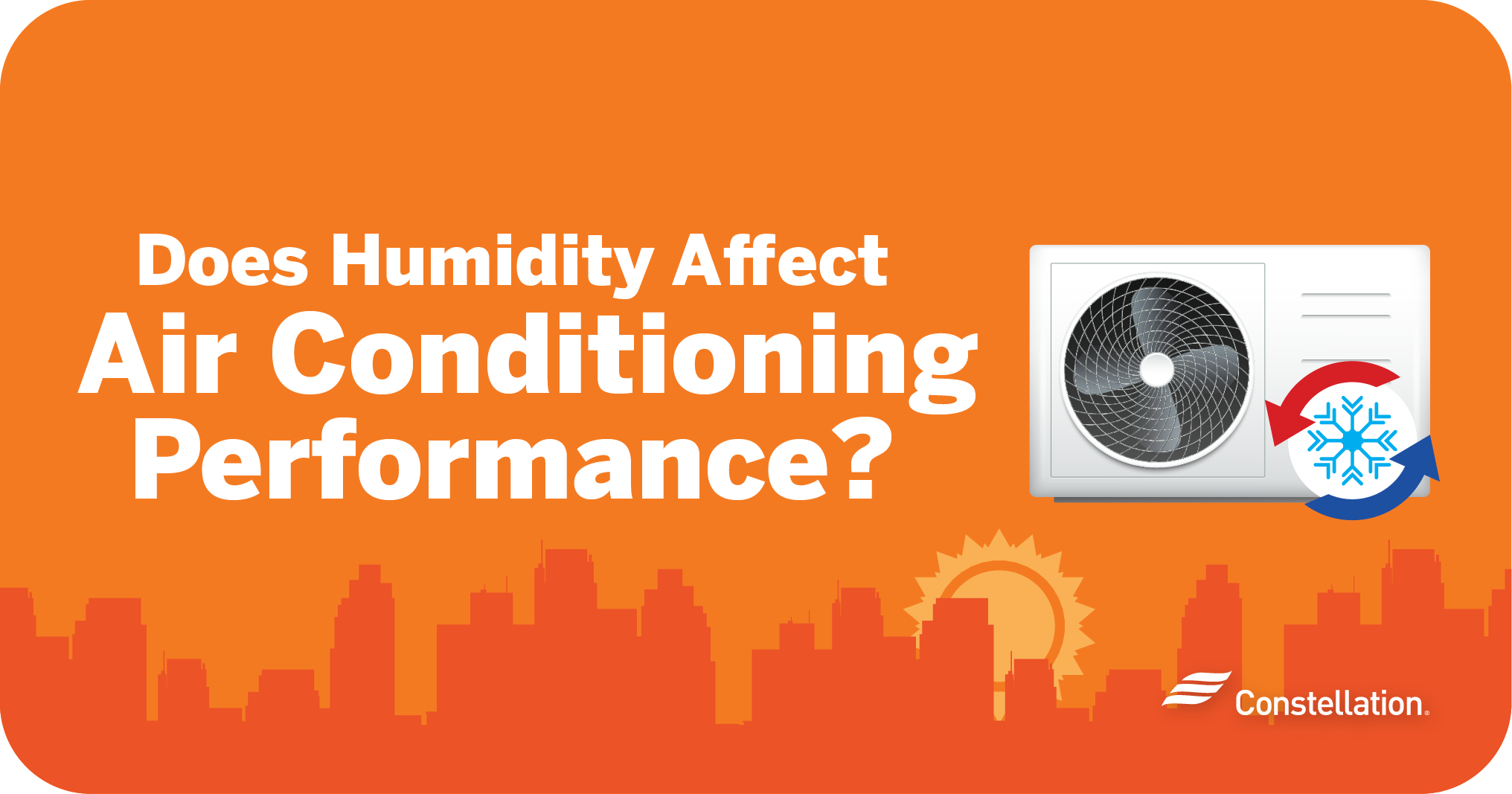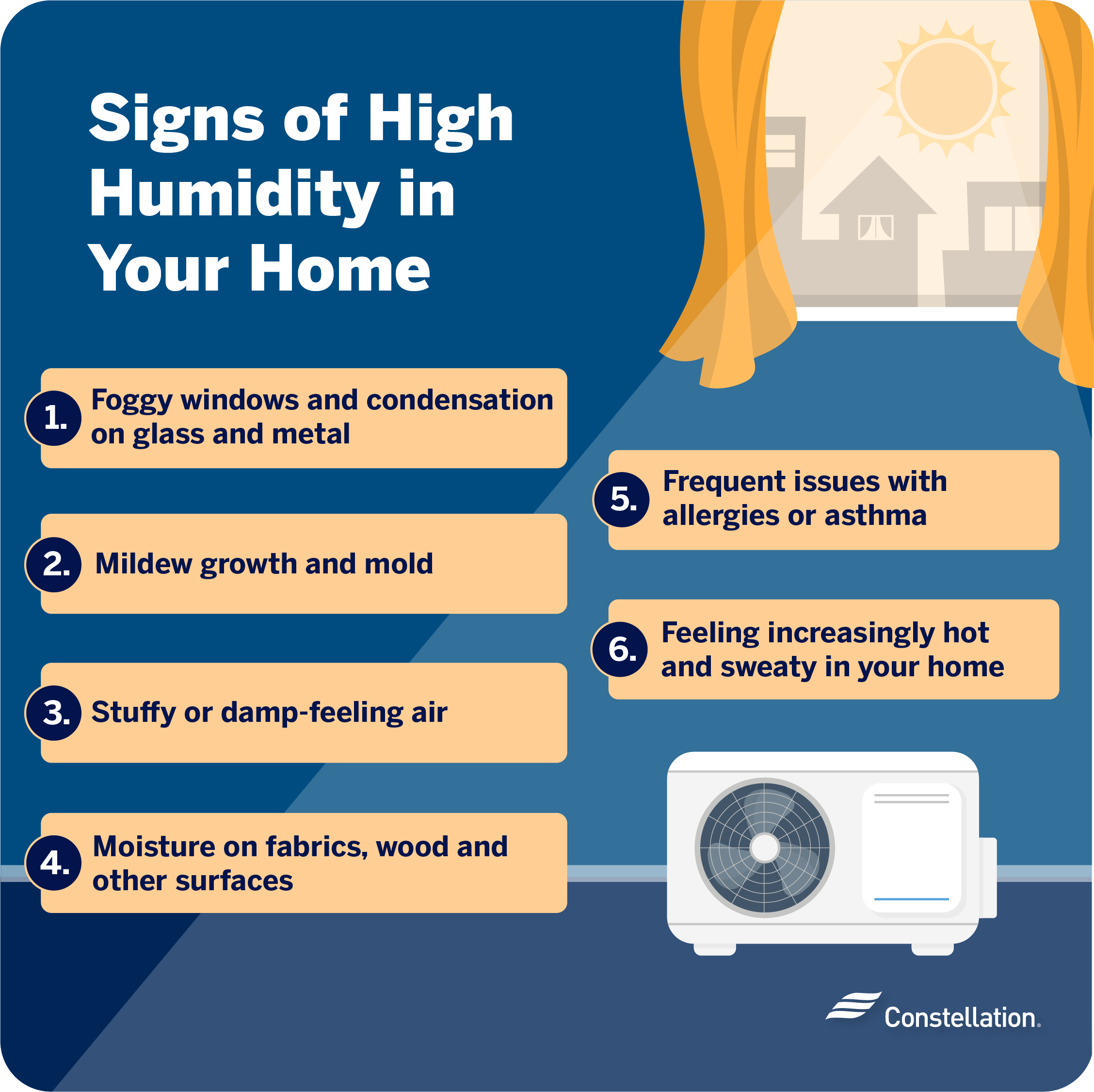
- Category:
Home Energy Savings -
Last updated:
August 31, 2023
Does Humidity and Heat Index Affect Air Conditioning Performance?
Summer can bring intense weather and extreme heat waves, often coupled with humidity. In some areas, these trends are on the upswing. Learning how weather impacts your AC system will help you get better performance out of your unit and ensure your AC system is as efficient and effective as possible.
Here you will discover how air conditioning and humidity interact and learn how the heat index affects air conditioning. We will look at how the heat and humidity work together and answer questions like: Does humidity affect air conditioning?
You might wonder, what is the heat index? It is a measurement for how you feel and experience heat and humidity. It calculates the outside air temperature along with the outdoor humidity level. High heat and high humidity create a high heat index, making you feel physically hotter than the number on the thermometer might suggest. If you are feeling it, it’s likely your air conditioner will too.
How Do Humidity Levels Impact Your AC Unit Performance?
The combination of high temperatures and high humidity outdoors and inside your home can both negatively affect the cooling potential of your system. Your AC unit works by collecting and removing hot air from your home. It then returns the air, now cool, to the rooms of your house. Most modern AC units include a dehumidifier function.
Why this feature is important is because of the answer to this question: Do air conditioners work harder in high humidity? Yes. Humidity requires your AC system to work harder to compensate. And since high humidity makes your home feel warmer than it actually is, you might run your AC longer and at a lower temperature just to feel comfortable.
How to Tell if Humidity Is High in Your Home

Knowing how humidity affects AC performance is important. It will help you understand why you need to manage humidity in your house. First, you need to determine if humidity is an issue in your home. If you are experiencing any of these conditions, you may have an issue with moist inside air and your AC may struggle to perform well.
- Fogging windows and condensation on glass and metal indicate moisture in the air.
- Mildew growth and mold may be visible, or you may sense a musty odor.
- Your AC is constantly running, but it still feels moist or clammy inside.
- Fabrics, wood and other surfaces may feel a bit damp to the touch.
- Frequent lung and skin infections, allergies or asthma could be signs of poor indoor air quality due to excess moisture.
- Your body sweats more in a humid environment, leaving you dehydrated and thirsty.
What to Do if You Have High Humidity and Your AC Unit Can’t Keep Up
How does humidity affect the temperature in a house? Humidity doesn’t affect the temperature in your house, but it does make you feel warmer. Your thermostat may say 75°, but you could still feel overheated if you have moist air inside. With air conditioning and humidity, how hot you feel, known as the heat index, is what matters when it comes to comfort.
The better question is: Does the heat index affect air conditioning? Yes, it does. When the humidity is high, your AC unit may not be able to keep up in providing comfort. Thankfully, you can do something about this issue. Taking care of humidity inside your home will make you feel more comfortable and help your AC run more efficiently to potentially lower your power bill.
These fixes to lower humidity in your house can all be part of the solution:
- Schedule regular AC maintenance. An expert can ensure that all parts of your system are in good working order, minimizing the effects of humidity. Frequent service will also extend your HVAC lifespan.
- Install a smaller or more modern AC unit. Newer units are simply more efficient in both cooling and removing humidity.
- Do a home energy audit. An expert can assess any inefficiencies of your home’s windows, insulation, cracks/leaks in doors or openings to ensure moisture is not getting in and cool air is not leaking out. Fixing home air leaks will save you money all year round.
- Install a dehumidifier on your HVAC system. If your AC doesn’t have a dehumidifier, you can add one, dramatically increasing your comfort level.
- Purchase a dehumidifier. An inexpensive, yet highly effective option is to buy a separate dehumidifier unit–or several. Place them in rooms where you spend the most time or where moisture is a particular problem. Be sure to look for energy-efficient dehumidifiers.
Learn More Energy Saving Tips From Constellation
Managing humidity can help with energy conservation in your home as much as it contributes to your comfort. Constellation has plenty of tips on how to make your home more energy efficient that go beyond optimizing air conditioning and humidity.
As a third-party energy supplier, Constellation also offers a variety of energy plans that may cut energy costs and contribute to home energy savings.




